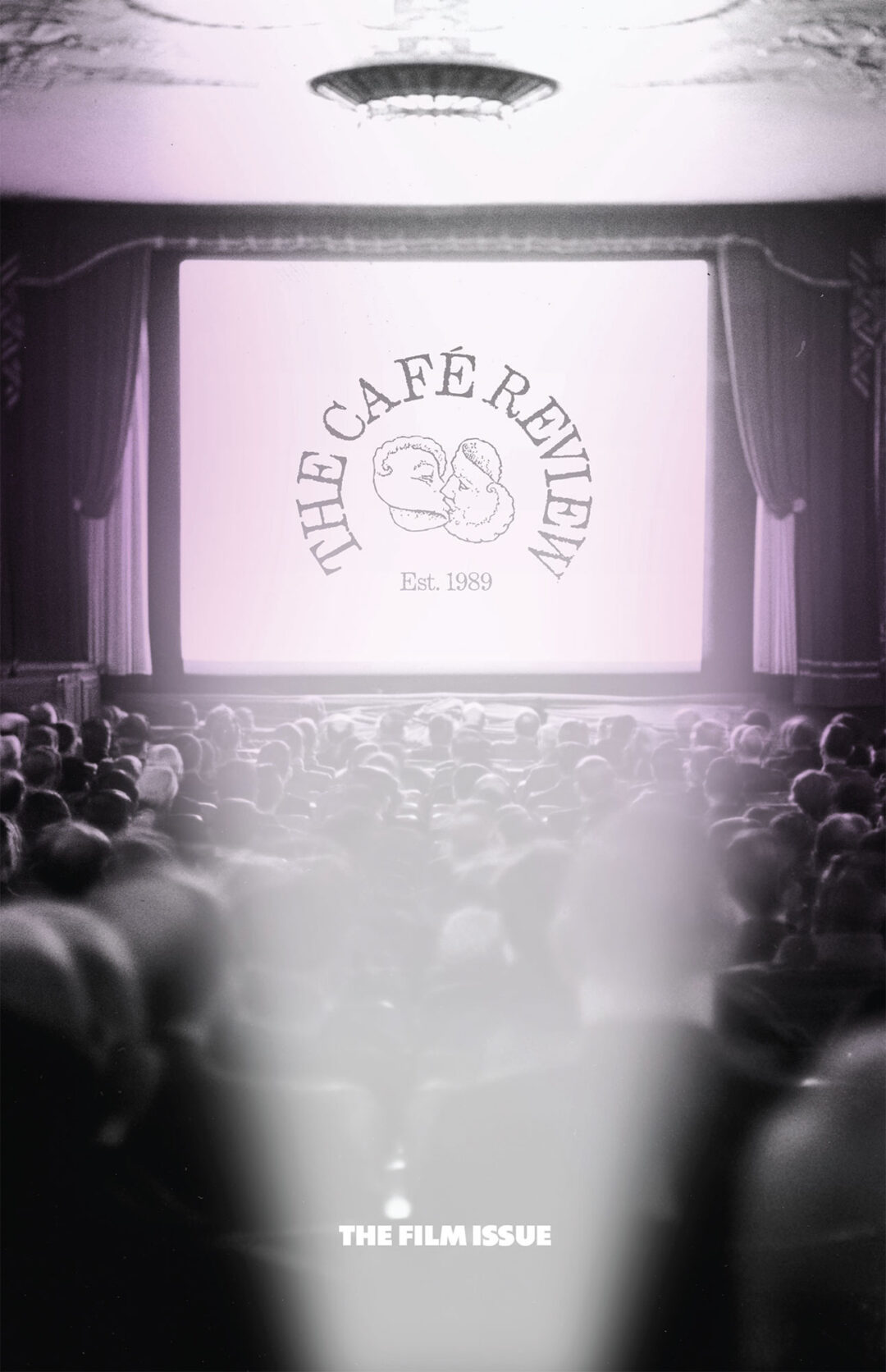I Lost it at the Movies

By Kevin Sweeney
I Lost it at the Movies
with apologies to Pauline Kael
Some days life feels like Jack Nicholson’s nose
in Chinatown after Roman Polanski sticks in
that little knife and rips it open. Now with
a maimed face, you go about your business
making sure Los Angeles won’t lose its drinking
water though residual pain from the slash wakens
you in the night, but it’s 1937, so there’s no
Ibuprofen let alone Hydrocodone; you’re stuck
with aspirin and whiskey which would help
if you already knew that later in the film you’ll
get to sleep with Faye Dunaway who studied
theater at B.U. but in the movie she’s Evelyn
Mulwray; hence no boring stories of obscure
Boston bands with true artists. She’ll never
say “There was a time when my only friends
were the musicians in Cambridge coffee houses,”
so self–involved she doesn’t notice blood leaking
through that bandaged nose, dripping onto your
double–breasted beige suit, making you curse
the shoddy metaphysics of a God whose
word arrives through the prophet, a revelator
speaking only to you, the Moses of North
Broadway. “Forget it, Jake. It’s Chinatown.”
The Vikings Starring Kirk Douglas and Tony Curtis

By Kevin Sweeney
One of the best things about the movie was Kirk Douglas
being blonde, like me, a fat 10 year old, so I gained hope
one day I too could have a chiseled face and muscles with
veins and not be afraid of heights, one day climb walls
while people above are throwing spears at me. Kirk was
tougher than Tony Curtis, tough as Ernest Borgnine
who jumped into a pit of wolves screaming “ODIN!” a
Scandinavian word that meant something other than “free
health care.” Vikings weren’t afraid of anything. Later
I heard some got shipwrecked near Ireland and swam
to shore where, after converting to Catholicism and
having sex with Irish wives, they fathered blonde blue–eyed
babies who looked like ME! I’d heard something similar
about the Spanish Armada survivors, which is why some
Irish babies had dark hair but were still as gloomy as the rest
of us. What I remember most is how Kirk didn’t kill
Tony, pondering a moment the possibility Tony was his
half–brother. Tony, afraid and seeing an opening, suddenly
killed Kirk, who, the end of the movie suggested, wasn’t
a bad guy, though no one would use an un–Viking word
like “sensitive.” So maybe the other lesson is that Irish
Catholic Guilt wasn’t born on the Emerald Isle but came
to us via those reasonable and sharing people of the
fjords who refuse to kill their own kin, believing, the
song about smiling on your brother still holds true
The Princess Bride

By Nancy Goldberg
My daughters sit snuggled on the corduroy couch,
a pottery bowl painted with splotches of blue and yellow
brushstrokes
overflowing with buttered and salted popcorn
occupying neutral territory between the cushions.
They are held captive by the princess, the farm boy,
a gorgeous gown, a pirate, duels of wit and brawn.
Sometimes, giants and revenge–seekers battle an army and win.
Sometimes, a farm boy can arise from being “mostly dead.”
I look at my daughters:
One is just starting to roll her eyes at my words,
shocking me daily with her newly sharpened voice,
her desire to wear skinny jeans and fish–tail braids.
Her older sister looks like a grown woman from the neck down,
and has freshly earned knowledge of how to navigate Geneva’s
trams,
but still has the full cheeks of girlhood marked by acne.
I’d like to encase them in a castle surrounded by a moat
until they’re ready to be buffeted,
but for now, they’re spellbound by a kiss,
as they watch the farm boy save the princess from death by blade.
Moulin Rouge Marseillaise

By Norman MacAfee
Choosing poetry was one more evasion
of a hated society, not history softening
into melodrama, not song fingers
plumbing the shallows of the emotions,
not the solitary mind’s dank midnight
alleyways figuring out technical
solutions well enough but missing the
voluptuousness, crucified on some personal
headlines and missing the wonder. But
even if enough people are brought into
the theater so that the race changes,
the machine gun armies can reface it all,
smiling at my comrades the pregnant women
or crucified on their sexual longing,
eyes rolling back into the cave in the
deceptively successful center of
anecdotal American employees,
58th and Madison, B–movie
lives narrated with real vitality,
half–hid in shadows of railroad stations
like the ghosts of emotions or halted
in the violent, disordered, but tempo–
rary suburbs. And the dummies in store
windows are truly dummies, “poor” mutterers
wishing to be antiseptic, and I
a poseur deferring to evasions
of appearing different, “mad.” Why want
to be beautiful, why try to be loved?


